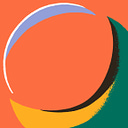
Why Subscribe?
OrgTech Review is trusted by industry-leading founders, investors, and consultants, to provide them with the latest news and cutting-edge research from the frontlines of Organisational Technology (OrgTech).
If email isn't your cup of tea, you can find updates on OrgTech Network’s Twitter.


Who is OrgTech Network?
OrgTech Review is the first product of OrgTech Network, a networked organization that provides products and services to accelerate the widespread adoption of OrgTech and Decentralized Autonomous Organizations (DAOs).
We're constantly looking for like-minded, OrgTech-savvy individuals to work with, so OrgTech Network could be you too. Let us know how you'd like to contribute and we'll make it work.
Contact
Drop us an email to let us know you're there. We'd love to hear from you and see how we can help each other.
To stay up to date about our work, follow us on Twitter, connect on LinkedIn, or subscribe to this newsletter.
FAQ
What is OrgTech?
Organisational Technology (OrgTech) is an emerging blockchain sector that digitises the firm, unlocking exciting new capabilities for decentralised work, project management, governance, and financial management.
“Blockchain-based "smart" contracts will eventually reinvent the firm.”
Naval Ravikant, AngelList Founder & Uber Investor
The goal is ambitious: to become the digital substrate upon which organisations can operate entirely online.
This is an industry in the making, which has remained unnamed until now. Check out my introductory thesis, OrgTech and the Networked Firm, for a more in-depth overview.
Examples of OrgTech projects include: Aragon (One, DAC, Autark, Black), Blackbox, Bounties Network (ConsenSys), BridgeDAO, CoGov, Collective One, Colony, Common Interest, CONE (ConsenSys), Continuous Organizations (by Fairmint), Convergent, Cordite, Covee, CRE8, DAO Incubator, Daonuts, DAOstack, Decidim, Democracy Earth, district0x, ditCraft, dOrg, Edgeware (by Commonwealth Labs), eInc, Ellcrys, EthKan, Gitcoin (ConsenSys), Giveth, GovBlocks, Govurn, Greaterthan Cobudget, Jur, Kelsen (by 97), Kleros, Loomio, MeshHub (ConsenSys), Native, Oath Protocol, Open Collective, open source coin, Opolis, Otonomos, P2P Models, Pando Network, Prism Labs, Sobol (ConsenSys), SourceCred, Swae, Talao, Thetta, Tribute, Wetonomy, and xDAC.
Note: Email us if you know of an OrgTech project we’ve missed.
What is a DAO?
A Decentralised Autonomous Organisation (DAO) is one of the more extreme use cases powered by OrgTech.
It is an organisation that functions without any central point of control (decentralised), resistant to interference from any external party (autonomous), by operating based on the collective input of its stakeholders according to the rules encoded in its blockchain.
Examples of (aspiring) DAOs include: Audacity, Bitcoin, Dash, Decred, DigixDAO, Ethereum, Giveth DAC, Gnosis dxDAO, KyberDAO, LeapDAO, MakerDAO, MolochDAO, PolkaDAO, and Tezos.
Note: Email us if you know of a DAO that we’ve missed.
Ethics
We aim to present independent coverage of the OrgTech sector. However, some of us are currently investors in OrgTech projects such as Aragon, Colony, and DAOstack. We will make every effort to check any subconscious biases before publishing, but we may make mistakes. If you feel we have done so, please email us and we will correct this publicly.
The content here is for informational purposes only and should NOT be taken as legal, business, tax, or investment advice. It does NOT constitute an offer or solicitation to purchase any investment or a recommendation to buy or sell any security or cryptocurrency. In fact, the content is not directed to any investor or potential investor and may not be used to evaluate or make any investment.



